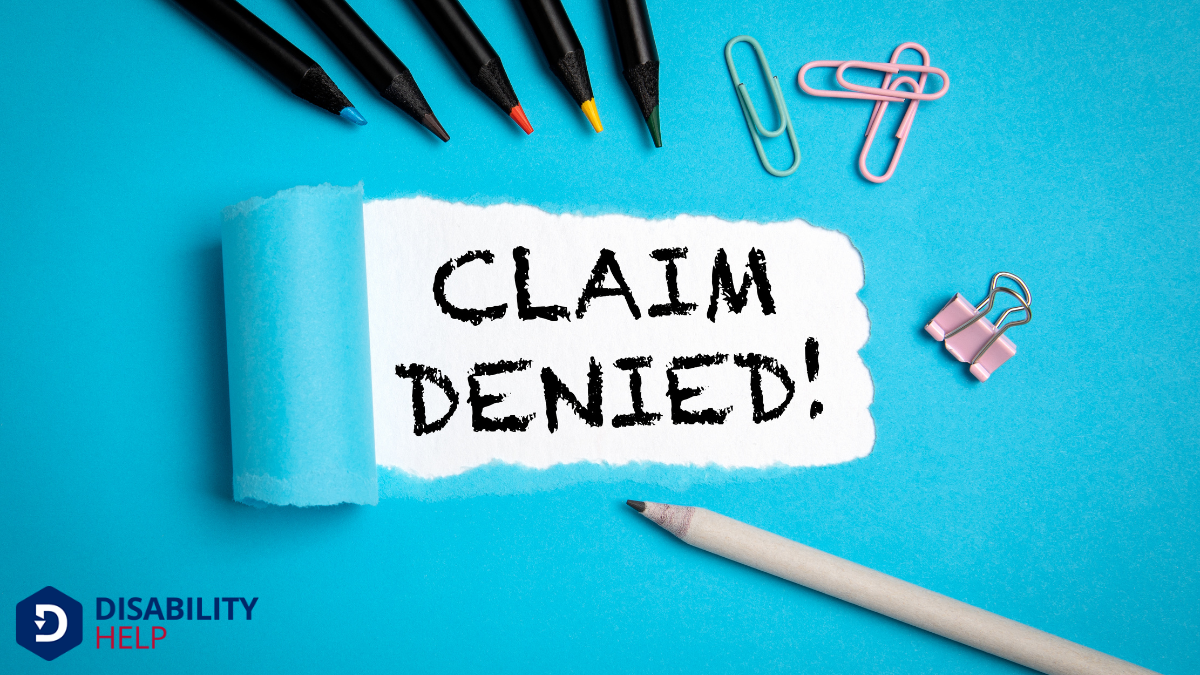Yes, we can appeal a denied short-term disability claim, and understanding the reasons for denial and support with thorough documentation is essential. Reviewing the denial letter helps pinpoint issues to address in the appeal. Collaborating with healthcare providers guarantees accurate medical documentation, while a strong, professionally-toned appeal letter reinforces our case. Consulting disability attorneys or advocates can enhance our approach. Let’s explore how to strengthen our case for approval.
Key Takeaways
- Yes, you can appeal a denied short-term disability claim by following the insurer's appeal process.
- Review the denial letter carefully to understand the specific reasons for the claim denial.
- Gather and submit additional medical documentation or evidence to strengthen your appeal.
- Ensure timely submission of the appeal to meet deadlines and maintain eligibility.
- Consider seeking professional assistance from disability attorneys to enhance your appeal's chances.
Understanding Short-Term Disability Claims
Steering through the world of short-term disability claims can feel overwhelming, but it doesn't have to be. We often find ourselves tangled in paperwork and procedures, but understanding the basics is the first step.
Short-term disability provides temporary financial support when we're unable to work due to illness or injury. It's essential to know the policy details, as this helps us navigate eligibility and benefits.
We must thoroughly review the insurance plan, noting the coverage period and requirements for filing a claim. Clear communication with our healthcare provider is critical to guarantee accurate documentation.
Familiarizing ourselves with these aspects not only eases the process but also empowers us to make informed decisions. Let's stay proactive and prepared for our journey ahead.
Common Reasons for Claim Denials

Let's explore why short-term disability claims often get denied.
A common issue is incomplete medical documentation, where essential details are missing from the records we submit.
We also need to be mindful of filing deadlines, as missing these can lead to automatic rejections.
Incomplete Medical Documentation
When it comes to appealing a denied short-term disability claim, one of the most frequent culprits is incomplete medical documentation.
We often assume that submitting a few medical records is enough, but it's critical to provide thorough, detailed information.
Let's make sure our documentation includes all relevant medical history, test results, and physician notes that clearly outline our disability and its impact on daily life.
It's important to communicate with our healthcare provider to gather all necessary paperwork and double-check that nothing's missing.
If the insurer sees gaps in our documentation, they may interpret it as insufficient proof of our condition.
Missed Filing Deadlines
Missing filing deadlines is another common reason short-term disability claims get denied. We understand how easy it's to lose track of time amidst life’s challenges, but adhering to deadlines is vital.
Most insurance policies have strict timeframes for filing claims, often requiring us to submit within a specific period after becoming disabled. Missing these deadlines can mean losing benefits, even if our case is strong.
To avoid this, let's check our policy's deadlines and mark them on our calendar. If we’ve already missed a deadline, it’s important to act quickly. Some insurers might offer grace periods or exceptions, but we need to communicate promptly.
Being proactive and organized can help guarantee we don’t lose out on necessary benefits.
Steps to Take After a Claim Denial
After receiving a claim denial, let's first understand the reasons behind it by reviewing the denial letter carefully.
Then, we should gather any supporting evidence that strengthens our case, such as additional medical records or expert opinions.
Finally, it's essential to submit the appeal properly, following all necessary guidelines and deadlines to increase our chances of a successful outcome.
Understand Denial Reasons
Understanding why a short-term disability claim was denied can be essential in planning your next steps. We need to carefully review the denial letter, which will outline the specific reasons for the decision.
These reasons might include missing documentation, insufficient medical evidence, or eligibility issues. By thoroughly examining this information, we can pinpoint what needs to be addressed to strengthen our appeal.
It's important to keep in mind that insurance companies adhere strictly to their policies, so we must understand where our claim fell short. If the denial letter is unclear, let's not hesitate to reach out to the insurance company for clarification.
This way, we guarantee we fully grasp the situation, enabling us to take informed action moving forward.
Gather Supporting Evidence
Once we've understood the reasons for denial, it’s vital to gather supporting evidence to strengthen our appeal.
First, let's review our medical records to guarantee they fully document our condition. If there's any missing or unclear information, contacting our healthcare provider for detailed reports or letters can clarify our situation.
Additionally, obtaining a second opinion from another medical professional might provide further validation of our disability. It’s also helpful to include any documentation of how our condition affects daily activities and work performance.
If applicable, statements from coworkers or supervisors can support our claim by highlighting changes in our work ability.
Submit Appeal Properly
Before we begin the appeal process, it’s crucial to guarantee that we comprehend the specific requirements and deadlines outlined by our insurer.
By understanding these details, we can avoid unnecessary delays or mistakes.
Let's make certain our appeal is thorough and submitted correctly by focusing on the following key steps:
- Review the denial letter: Identify the reasons our claim was denied and address each point in our appeal.
- Follow submission guidelines: Make sure we adhere to the insurer's specific instructions for submitting the appeal, including using the correct forms and methods.
- Meet deadlines: Keep track of all appeal-related deadlines to make certain our submission is timely and considered.
Gathering Necessary Documentation
Securing the right documents is essential when appealing a denied short-term disability claim. We need to gather all pertinent medical records that demonstrate the severity of our condition. This includes doctor's notes, test results, and any specialist evaluations.
It’s vital to guarantee that these documents clearly outline how our disability affects our ability to work. Additionally, we should obtain any correspondence from the insurance company regarding the denial. This helps us understand their reasons and address them effectively.
Let’s also ask our healthcare provider for a detailed letter explaining our diagnosis, treatment, and prognosis. This letter should emphasize why our condition prevents us from performing job duties.
Collecting these documents not only strengthens our appeal but also shows the insurance company we’re serious about our claim.
Writing an Effective Appeal Letter

Now that we’ve gathered all the necessary documentation, it's time to focus on crafting an effective appeal letter. The goal is to clearly communicate why our claim deserves reconsideration. Start by addressing the decision-maker directly and stating our intent to appeal.
Explain our situation succinctly, highlighting any new evidence or overlooked details. Remember, clarity and organization are key.
When writing, keep these points in mind:
- Be Specific: Clearly identify the claim reference number and the reason for the initial denial.
- Use Supporting Documents: Reference the documentation we've gathered to bolster our argument.
- Stay Professional: Maintain a respectful tone, even if we’re frustrated by the denial.
Navigating the Appeal Process
Although appealing a denied short-term disability claim can seem challenging, understanding the appeal process equips us with the tools to move forward confidently.
First, we should carefully review the denial letter to identify specific reasons for the decision. Knowing the insurer's objections helps us address them directly.
Next, let's gather relevant medical documentation and any other supporting evidence that strengthens our case.
Timeliness is essential; we need to adhere to our insurer's specified deadlines for filing an appeal.
It's also helpful to contact our insurance company for clarification on any unclear points and to guarantee we meet all requirements.
Legal Rights and Protections
Understanding our legal rights and protections is just as important as steering through the appeal process for a denied short-term disability claim. Knowing what we're entitled to can empower us and guide our actions.
Our rights often include the ability to request a thorough explanation for the denial, access to all relevant documents, and a fair review process.
- We've the right to request detailed information about why the claim was denied, which helps us address any issues.
- We're entitled to access all documents and evidence used in the decision-making process, ensuring transparency.
- The appeal process should be fair, which means our claim must be reviewed by an unbiased party.
Working With Your Healthcare Provider

When appealing a denied short-term disability claim, we must work closely with our healthcare provider to guarantee success.
By gathering the necessary medical documentation and clearly communicating our diagnosis and symptoms, we strengthen our case.
It's also important that our treatment aligns with the claim requirements to avoid any discrepancies.
Gathering Necessary Medical Documentation
To effectively appeal a denied short-term disability claim, it's essential that we work closely with our healthcare provider to gather thorough medical documentation. This step is vital in building a strong case.
First, let's verify that our medical records precisely reflect our condition's severity and impact. We should ask our provider to compile an extensive report detailing our diagnosis, treatment, and prognosis.
Additionally, supporting documents like lab results, imaging studies, and specialist consultations can boost our appeal's strength.
- Request a detailed letter from our doctor summarizing our condition and its effects on our daily life.
- Collect all relevant test results to provide concrete evidence of our medical status.
- Gather records of ongoing treatments to demonstrate the continuous need for care.
Communicating Diagnosis and Symptoms
Although steering through the process can seem intimidating, effectively communicating our diagnosis and symptoms to our healthcare provider is vital in strengthening our appeal. We must guarantee that our provider clearly understands how our condition impacts our daily life.
Detailed descriptions of our symptoms, their frequency, duration, and intensity will help them document our case accurately. We should take notes on how our condition affects us, possibly keeping a journal to track changes and patterns.
When meeting with our provider, it’s imperative to discuss all symptoms, even those that seem minor. Let’s ask questions if we’re unsure about anything, making sure we’re on the same page. This open communication helps our provider craft a thorough report that supports our appeal.
Aligning Treatment With Claim
Aligning our treatment with our disability claim is vital for a successful appeal. We must collaborate closely with our healthcare provider to guarantee our medical records reflect our condition accurately. This alignment strengthens our case and addresses any discrepancies that might've led to the denial.
Here’s how we can work with our provider:
- Discuss our claim details: Make sure our doctor understands the specifics of our disability and the insurance requirements.
- Document symptoms and progress: Regular updates and detailed notes can provide significant evidence of our ongoing condition and treatment.
- Review and update treatment plans: Aligning our treatment with what’s expected by the insurer shows we're actively managing our health.
Seeking Professional Assistance
When faced with the frustration of a denied short-term disability claim, seeking professional assistance can be an essential step towards a successful appeal.
We often feel overwhelmed by the complex paperwork and legal jargon involved in the process. That's where experienced professionals, like disability attorneys or advocates, come in.
They can guide us through the appeal, ensuring we meet deadlines and present our case effectively.
Strengthening Your Case for Approval
One essential step in strengthening our case for approval is gathering thorough and compelling evidence to support our claim.
By doing so, we can clearly demonstrate the legitimacy of our disability and the impact it has on our ability to work.
Let's guarantee we collect the necessary documentation:
- Medical Records: Obtain detailed reports from our healthcare providers that outline our diagnosis, treatment planA detailed plan developed by healthcare professionals to treat a specific health condition, outlinin..., and any limitations we face.
- Personal Statements: Write a clear, concise account of how our condition affects our daily life and ability to perform job duties.
- Employer Support: Gather statements from our employer that corroborate our condition's effect on our work performance and attendance.
Conclusion
In managing a denied short-term disability claim, we've got each other's backs. Let's tackle this together by understanding the reasons for denial, gathering the right documents, and crafting a compelling appeal letter. Remember, we're not alone—our healthcare provider and professionals are here to support us. By knowing our legal rights and strengthening our case, we're paving the way for a successful appeal. Together, we'll turn this setback into a stepping stone.






